Windows 10 Technology Adoption Analysis
The Technology Adoption Analysis is designed to improve the up take of technology within the workplace. A successful adoption strategy will create huge opportunities for the employer to maximise productivity and see a profitable return on investment for their software purchases. Resistance from employees creates a major barrier to the successful uptake of new technology, a successful strategy will overcome this.
This course can be completely customised for each client as appropriate.
| Duration | 2 Days |
| Group Size | Up to 10 people maximum |
| Prerequisite | No Prerequisite |
| Audience | Customers migrating to Windows 10 or Microsoft 365 from previous versions |
| Training Room Prerequisites | Meeting Room TV/Projector PC/Laptop with Windows 10 |
Training Approach
A good technology adoption strategy will overcome:
- Negativity amongst employees
- Uncertainty within the workplace
- Frustration and inefficiency
- Resistance to break old habits
- Lack of confidence
A good technology adoption strategy can result in:
- An accelerated journey to higher productivity
- Increased employee satisfaction
- Increased return on investment
Readiness Assessment:
- Gain insight to how ‘ready’ the company is
- Identify further areas of potential value that can be achieved
- Propose recommendations that could help avoid underachieving post technology rollout
Readiness Assessment Scope (TARA):
- ‘Adoption Consultant’ and ‘Technology End User Expert’ engaging with key stakeholders
- The Business Case – understand the business case behind the technology adoption and identify benefits that can be aligned.
- Technology – design specifics and how they fit with other tools in the organisation
- Audience Assessment – audience identification and impact on each group
- New Ways of Working – what changes are needed in the process, procedure and policy to ensure success
Readiness Assessment Process:
- Comprehensive review of the organisation’s readiness to adopt new technology
- Stakeholder surveys
- Employees workshops
- Interviews with End Users
- Analysis of existing data
Deliverables:
- An overview of the solution at high level
- An overview of the engagement and recommendations
- Current Situation – Overview of the challenges facing the organisation
- Measures and Outcomes – A review of the measures required and recommendation on how to achieve agreed outcomes
- User journeys – A detailed schedule of activities impacting a user based on their role including all engagements, communications and training
- Change Management Strategy and Communications Plan – A suggested framework for communications and engagement plan, to promote change and adoption, achieving business goals
- Training Plan – Detailed training strategy and training deployment plan including specific timelines, resources and deliverables

